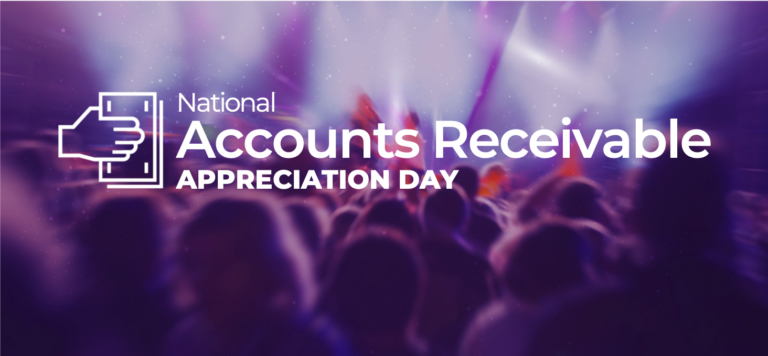Mathematics is often regarded as a universal language, but numbers can be presented in ways that may lead to misinterpretation. To ensure transparent and consistent communication about businesses’ financial performance and health, various local and international accounting standards have been established by companies and governments worldwide.
The International Financial Reporting Standards (IFRS) are among the most widely adopted accounting frameworks, embraced by over 160 nations. In this article, we’ll explore IFRS, particularly its key standards, who needs to conform to them, and how to make compliance as simple as possible.
What is IFRS and its objectives?
Issued by the not-for-profit International Accounting Standards Board (IASB), IFRS is a set of clearly defined accounting rules that dictate how a business should document and report its expenses and revenue. While these guidelines lack any direct authority themselves, many regional and national governments mandate compliance with them for any publicly traded business.
In general, the objective of IFRS is to make it easier for interested parties — such as investors, lenders, and creditors — to efficiently evaluate and compare the value of businesses, regardless of their size, industry, or location. With common reporting standards, these stakeholders can make more informed decisions about investing in, offering credit to, or influencing the direction of these organizations.
Standard IFRS requirements
As it stands, 19 standards are currently in place for IFRS accounting, establishing targeted bookkeeping guidelines for a broad range of operations, from acquisitions to insurance contracts to the exploration of mineral resources. However, it’s important to note that the recently issued IFRS 18 and 19 standards do not take effect until January 1, 2027.
Though not exhaustive, the following key areas are generally affected by these rules:
- Financial statements: Guidelines on the required information in financial reports and how it should be presented.
- Revenue recognition: Criteria for when and how to record income related to contracts or sales.
- Leases: Requirements for placing lease assets and liabilities on the balance sheet.
- Financial instruments: Standards for measuring and disclosing financial risks, such as expected credit losses.
- Business combinations: Methods for valuing and recording newly acquired assets and liabilities.
- Segment reporting: Requirements for disclosing details about operating segments.
- Fair value measurement: Guidance assigning prices to assets and liabilities based on current market conditions.
IFRS vs. GAAP
While IFRS is broadly accepted worldwide, publicly traded businesses in the United States follow an alternate rule set: Generally Accepted Accounting Principles (GAAP). The Financial Accounting Standards Board (FASB), yet another non-government, non-profit organization, maintains these guidelines.
In most cases, GAAP and IFRS standards align; however, there is some variance in how these policies handle:
- Inventory costs
- Investment income
- Research and development costs
- Write-downs
Do you need to comply with GAAP, IFRS, or both? Explore the two rule sets in more detail in our blog: IFRS vs. GAAP: Key Differences You Need to Know.
Who does IFRS apply to?
Whether or not your business must meet IFRS accounting guidelines will predominately depend on the country where you are located. Every member nation of the European Union and the G20, along with Canada, Australia, and most of Asia, Africa, Central America, and South America, all either recommend or align with IFRS. And most of these jurisdictions — 147 in total — mandate compliance for any financial institution or publicly traded business.
Only seven countries on the planet have completely ignored IFRS guidelines, instead embracing their own national or regional standards: Bolivia, China, Egypt, India, Macao SAR, the United States, and Vietnam.
How A/R automation can help your business maintain compliance
If your business is publicly traded, there exists some manner of government-mandated guidelines — IFRS, GAAP, or other — that you’ll need to meet. Trying to keep up with those comprehensive reporting and bookkeeping standards by hand or with outdated software and processes can quickly become a headache that eats into your efficiency and profitability. Even worse, you can expect stiff financial penalties if you make any mistake, which manual accounting and reporting efforts seem to invite aggressively.
Conversely, you can more easily navigate these comprehensive rule sets with an automated approach to your accounts receivable (A/R) — something like what we provide here at Invoiced (a Flywire company). Fortunately, the advantages delivered by automation can benefit your business even if you’re not publicly traded and your only reporting requirements are internally determined or set by potential investors.
Enhanced data accuracy
Only some things will undermine compliance with IFRS more quickly than incorrectly recording financial information. By choosing an automation platform with comprehensive integration capabilities, like our Accounts Receivable Automation software, you can seamlessly pull timely, accurate data into your invoicing efforts directly from your existing enterprise resource planning (ERP) systems, with no transcription required.
Streamlined reporting
Having accurate financial data in your systems significantly reduces the reporting burdens related to IFRS. Additionally, many platforms come with sophisticated reporting tools, minimizing the effort required to document your finances, such as the pre-built reports included in our solution. With our Advanced Reporting add-on, you can streamline compliance by effortlessly creating custom documents using a wide range of objects and field types.
Accelerated revenue recognition
IFRS 15 outlines specific criteria for revenue recognition, tying it to the transfer of control for the good or service rather than the completion of a particular transaction. Therefore, it’s critical that you quickly and accurately identify when products or services are delivered, which can sometimes become complicated if you are operating under a subscription model. No matter your billing strategy, with clearly established automation workflows guiding your invoicing processes — and eliminating unnecessary delays — you’ll be in a much better position to keep payments moving smoothly and accurately recognize when you should record revenue.
Improved cash flow
Under IFRS, organizations must routinely disclose accurate details of overall cash flow and associated liquidity risks. The right automation platform can help you track your incoming and outgoing capital more efficiently and better leverage it for your business. Take the Cash Application feature of our solution, for example. This feature simplifies payment processing by automatically aligning incoming funds with the appropriate account, helping to ensure that funds are where they’re supposed to be.
Simplified risk management
To effectively assess your business’s financial standing, it’s essential to track existing assets and incoming revenue and identify potential risks like expected bad debt. Fortunately, A/R automation helps to limit the potential of these losses. For instance, our Smart Chasing function automates and standardizes the dunning process, helping to accelerate the receipt of payments and reduce the threat of non-payment for services already rendered. Similarly, our Cash Collection Forecasting tool makes predicting when — and if — you’ll receive payments easier.
Set a new accounting standard for your business with Invoiced
Whether you follow IFRS, GAAP, or other standards, selecting the appropriate A/R platform—such as our Accounts Receivable Automation software—can greatly simplify your responsibilities. Our automated workflows enhance management efficiency, and with robust integration support and comprehensive reporting features, verifying and documenting compliance with regulatory standards is easy. In addition, our software is specifically designed for IFRS, having recently been upgraded to leverage Flywire’s global payment capabilities, enabling you to conduct transactions in over 140 currencies seamlessly.
Get started by requesting a demo today!






